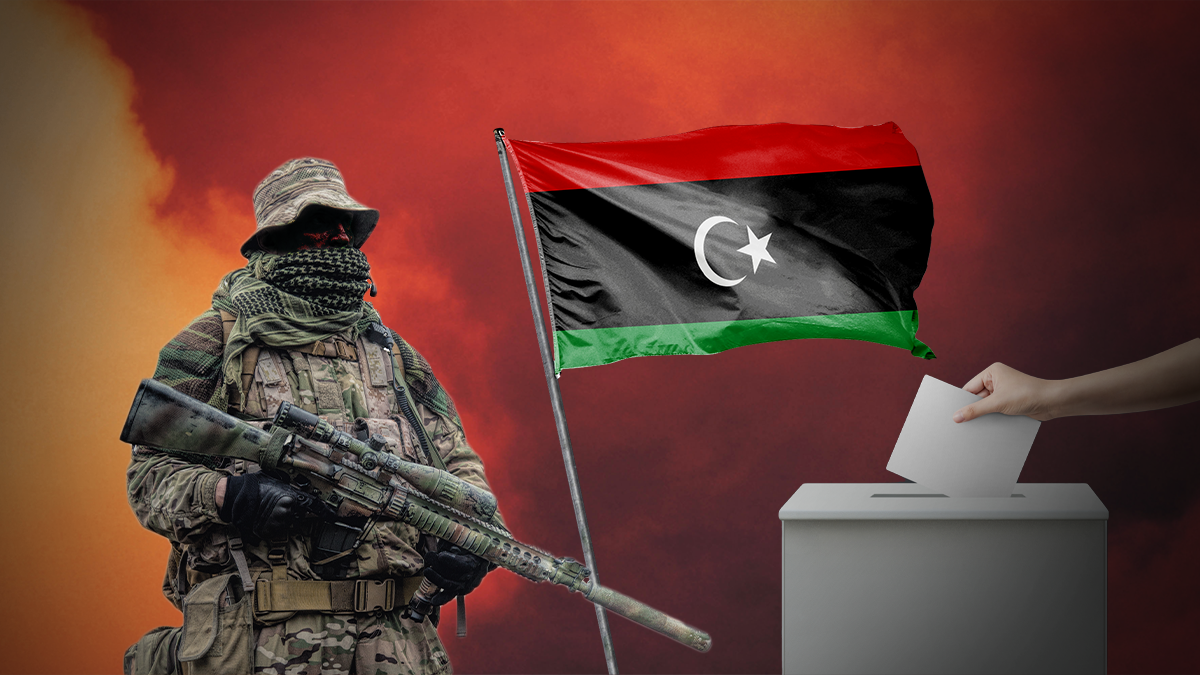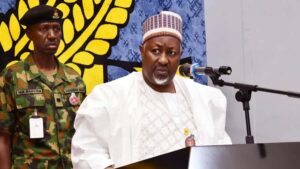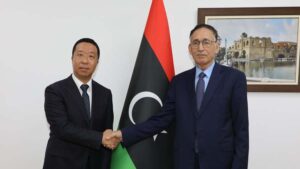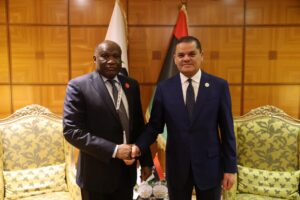Now more than ever, Libyans seem to have a shot at trying to practice their democratic rights of electing a president through free and transparent voting thanks to an agreement reached by warring parties, and more importantly by the international stakeholders, first on a ceasefire in October 2020 to end Khalifa Haftar’s war on Tripoli and second on a new interim executive authority that produced a new consensual Presidential Council and a Government of National Unity.
Among all the obstacles that could derail holding elections on December 24 as per the roadmap of the Libyan Political Dialogue Forum (LPDF), which gave birth to the executive authority, is the presence of multinational mercenaries in Libya, mainly: pro-Haftar Russian Wagner Group, Chadian, Sudanese Janjaweed soldiers of fortune, who fought for Haftar to seize power in 2019 but were defeated by the Libyan Army forces and then retreated to central and eastern Libya.
With 96 days to reach the deadline of December 24 for Libyan general elections, mercenaries’ presence on Libyan soil still poses a threat to the transparency of elections, knowing that the roadmap of the LPDF instructed all parties to remove their forces and foreign fighters from Libya by May, but the deadline passed four months ago and mercenaries are still positioned in Sirte, Jufra, eastern Libya and areas around oil facilities: all under the command of warlord Haftar, who intends to run for elections but is keeping mercenaries on Libyan soil to use them in a new war if he lost in the polls.
For Jalel Harchaoui, a senior fellow at the Global Initiative, elections and withdrawal of mercenaries are not truly related.
“Earlier this year, during the spring particularly, international diplomats had a tendency to present the departure of all mercenaries as a prerequisite before any election could even be envisaged.” Mr. Harchaoui says.
He adds that the calls for mercenaries’ departure was just a rhetorical trick to emphasize the urgency of the mercenary issue.
“Over the last couple months, American and other diplomats stopped making it sound like the two problems were interlinked. Foreign states insist on elections while often not even mentioning the problem of foreign mercenaries in Libya.” Mr. Harchaoui indicated.
Mr. Harchaoui says the reality in Libya is that mercenaries’ full — or even partial — departure is unlikely to happen this year and everyone knows that.
“With regard to elections, it is of course not a good thing to have foreign presence during a Libyan vote. But on the particular issue of presidential and legislative elections, there are other, much bigger obstacles.” He says.
On the surface, Russia keeps calling for the withdrawal of mercenaries from Libya, but behind the scenes Moscow-backed Wagner Group mercenaries are still positioned in Libya to support Haftar on the ground in case he wanted to wage a new offensive on the legitimate government or in case he or his staunch supporters lost in the December elections: if held!
To this end, the Speaker of the House of Representatives (HoR) Aqila Saleh, has never publicly called for the withdrawal of Russian mercenaries and other fighters from Libya because he knows that they are under the command of his boss: Haftar.
Instead, Saleh has devised a flawed elections law that allows a war criminal like Haftar to run for elections in Libya despite being a dual citizen (American Libyan) and holding a military job. The law says that any candidate can suspend work in their posts three months before elections, and if they lose, they resume work and get their delayed salaries.
Aqila Saleh, by this law, aims to control the legislative process. He and Haftar are behind the split of Libya between east and west and they are working to deepen the fragmentation so that they can benefit more and more from the chaos. Democracy and elections are a threat to their very existence.
By Abdulkader Assad – Libyan Analyst





